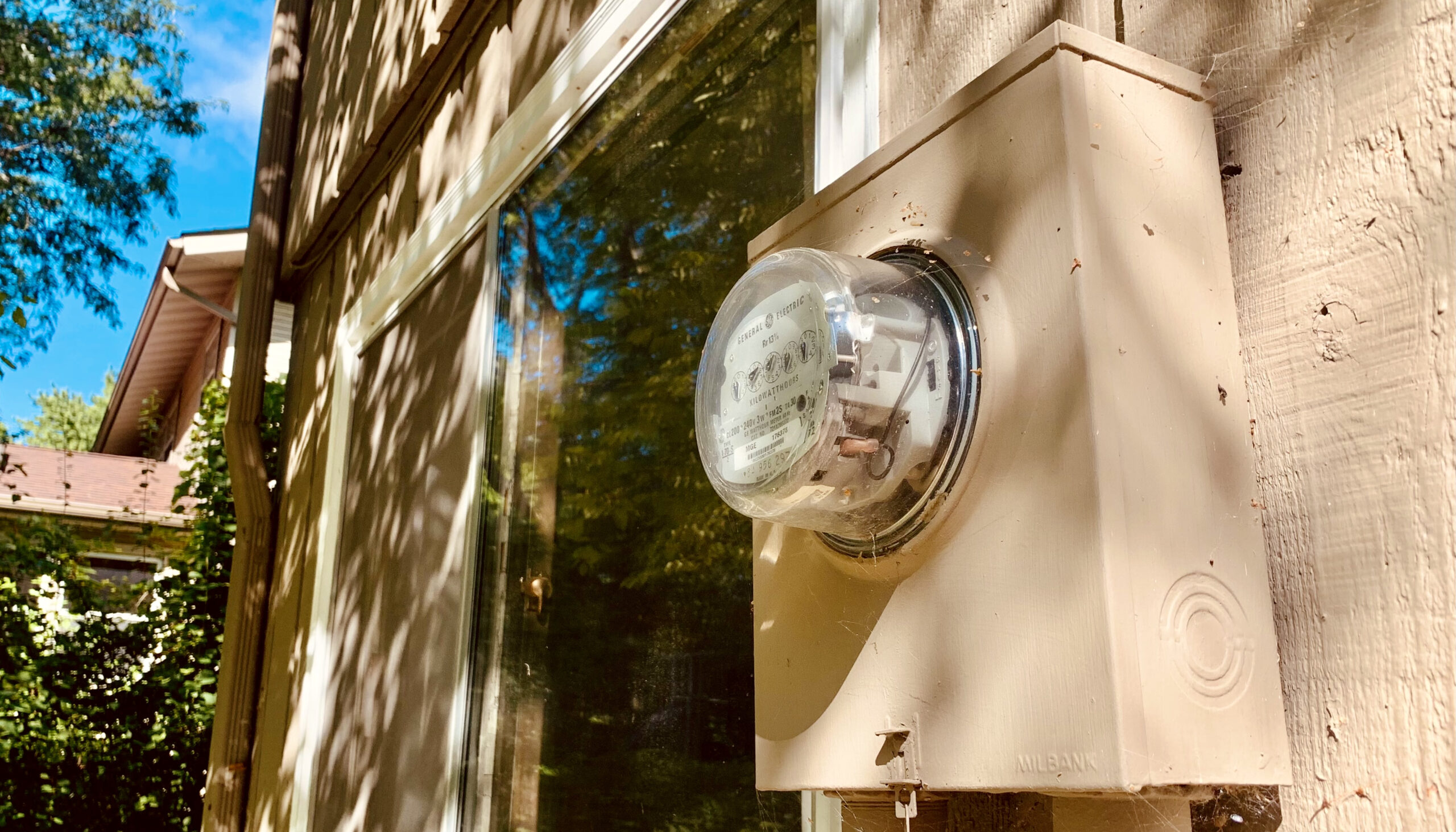Our Climate > Energy Efficiency
Energy Efficiency
Cutting energy waste is one of the most powerful—and affordable—ways to protect our environment. It reduces harmful emissions, lowers utility bills, and creates healthier homes and communities across Wisconsin.
Jump to Section
Explore Our Approach
Overview
Energy Efficiency: A Climate Solution That Starts at Home
In Wisconsin, nearly half of our energy use comes from buildings. Most of that energy still comes from fossil fuels—meaning every drafty window or outdated appliance adds to carbon pollution.
With our older housing stock and colder climate, Wisconsinites pay some of the highest energy bills in the country. In some low-income communities, energy costs can take up more than 25% of a household’s income.
The good news? We already have the tools to fix this. Weatherization, efficient electric appliances, and smarter building standards can dramatically reduce pollution while improving comfort, safety, and affordability for everyone.
45%
of Wisconsin’s total energy use comes from buildings
80%+
of residential energy use relies on fossil fuels
Up to 26%
of household income spent on energy in parts of Milwaukee
15+
years out of date: Wisconsin’s residential building energy codes
KEY INITIATIVES
How We Save Energy—and Why It Matters
Wisconsin’s older buildings weren’t built with energy efficiency—or climate change—in mind. Clean Wisconsin is working to improve existing homes and commercial buildings by promoting smart upgrades, energy-saving appliances, and better standards.

Weatherization
Before upgrading appliances, seal the gaps. Weatherization improves comfort and cuts energy waste through insulation, sealing leaks, and upgrading windows and doors.

Electrification and Efficiency Upgrades
Electric appliances—like induction stoves, heat pump water heaters, and energy-efficient fridges—are cleaner, safer, and ready for a renewable-powered grid.

Heating and Cooling with Heat Pumps
Heat pumps are all-in-one systems for heating and cooling that are up to 3x more efficient than traditional furnaces and air conditioners—and they don’t need fossil fuels to run.

Renter Recommendations
Even without owning your home, you can cut emissions and save money through low-cost upgrades like LED lighting, smart thermostats, and water-saving fixtures.

Advocating for Cleaner Standards
We’re pushing for policies and incentives that support cleaner, more efficient homes—especially in communities that have long faced high energy burdens and pollution.
Health Effects
Building Better from the Start
Clean Wisconsin is advocating for modern building codes and promoting voluntary certification programs that help new construction go beyond the minimum—making buildings more efficient, healthier, and resilient.
Updating Wisconsin’s Building Codes
Wisconsin’s codes are 10–15 years behind. We’re fighting to update them—and encouraging builders to aim even higher with all-electric, energy-smart designs.
LEED
LEED certifies buildings based on a points system, with four levels from Certified to Platinum—making it the most widely used standard.
WELL
WELL focuses on human health, prioritizing air quality, natural light, and wellness—and works seamlessly alongside LEED.
Phius
Phius promotes passive building design that slashes energy use with high-performance insulation, air sealing, and climate-specific strategies.
Energy Star
A no-cost, energy-focused certification from the EPA that applies to appliances and buildings with solid efficiency performance.
Green Built Homes
This Wisconsin-based program offers flexible options for environmentally friendly homes—and reflects our state’s unique needs and values.
Living Building Challenge
The most rigorous sustainability certification out there, covering everything from net-zero energy and water to equity and beauty.
PROGRAM SPOTLIGHT
Wisconsin’s Focus on Energy Program

Clean Wisconsin was instrumental in pushing state lawmakers to create Wisconsin’s Focus on Energy Program. Since 2001, Focus on Energy has helped families and businesses cut emissions, save money, and reduce energy waste through rebates, expert support, and easy-to-access tools. Funded by investor-owned utilities—not taxpayers—the program delivers big returns: it saves enough energy to power 80,000 homes each year, returns $5 in benefits for every $1 invested, and supports more than 76,000 clean energy jobs statewide—most in energy efficiency.
But demand for these benefits is outpacing available funding. Wisconsin once ranked among the top 10 states for energy efficiency but has now slipped to 26th. Clean Wisconsin is pushing to remove the program’s funding cap and double its investment—unlocking $100 million in new benefits, reaching more low-income and rural households, and helping communities across the state adopt cleaner technologies and lower utility costs.
SIGN UP
Join the Fight for Our Climate
Sign Up For Email Updates
"*" indicates required fields